#ask dylan
Text

Happy Desolation Row anniversary, released on this day in 2009 ⚡
#feeling feelings rn#i wanna thank bob dylan for creating this song#alan moore and dave gibbons for watchmen#zack snyder for... everything but mainly this video and asking them to do the cover#and this gang for their passion#once again there's a coincidence in these 2 anniversaries and it's fuck the police (on the videos bc stylo's lyrics are unrelated)#my chemical romance#desolation row#zack snyder#mcr#mcredit#desolation row gerard#desolation row ray#desolation row mikey#desolation row frank#gerard way#ray toro#frank iero#mikey way#bob bryar#btw the last frame has been my laptop's lockscreen for... so long i wonder if i will ever change it#that jaw eye...#favourite videos#1k
1K notes
·
View notes
Text
Me: I'm color-coding it! [Explains system]
My sister: [chokes on a laugh]
Me: What?
My sister: Nothing, I was gonna say something but it's really mean.
Me: What is it? Like the suspected autism, or--?
My sister: No it's just, dude you're color-coding a cookbook. Get a job.
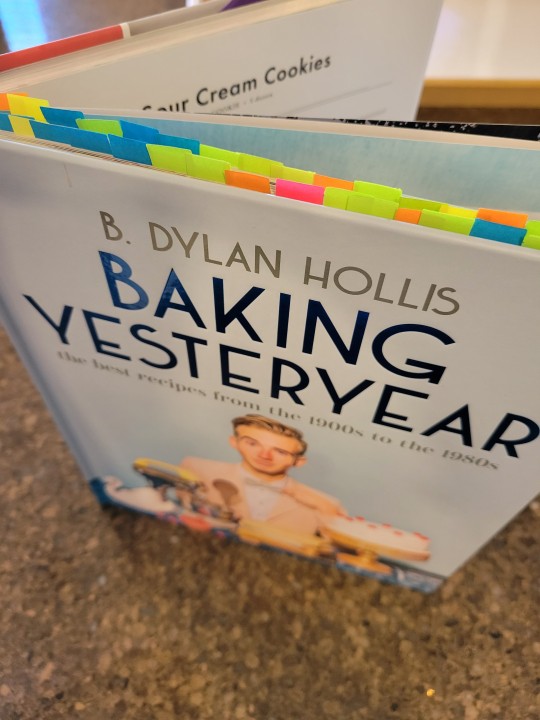
#b dylan hollis#baking yesteryear#job hunting#personal#autism#i showed her this post and she asked 'are you flexing that you don't have a job'#my response was 'no I'm flexing that I have this cookbook'#anyway the color coding is mostly by vibe. green for the extra-desserty. blue for the heavier less sugary stuff (usually with fruits)#orange for bread and yellow for 'I really dislike one of the ingredients but my family would like it'#pink is for Buckwild stuff and so far that only has the pork cake#Edit: just hit another Pink it's the chocolate sauerkraut cake
2K notes
·
View notes
Photo

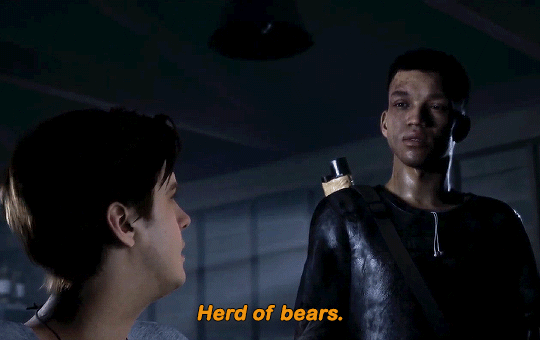
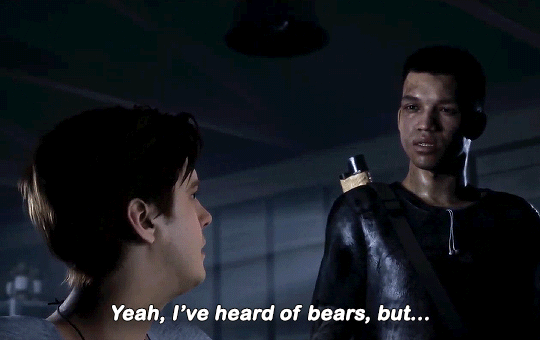
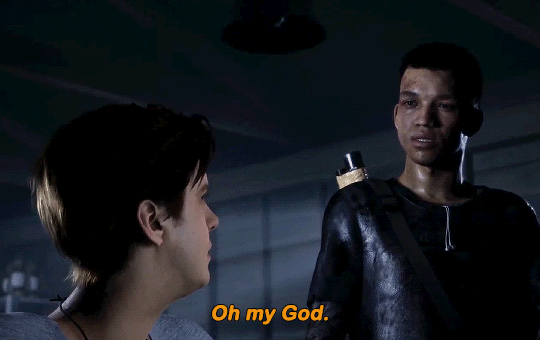
#the quarry#the quarry spoilers#thequarryedit#supermassive games#ryan erzahler#dylan lenivy#gameedit#yes the line is good#but dylan asking if he did good might just be better
13K notes
·
View notes
Text
Credit to @jungshoseok
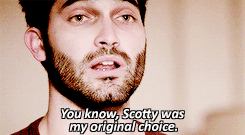
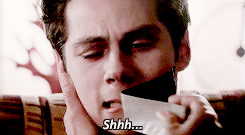
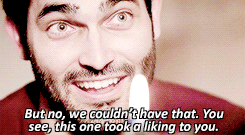

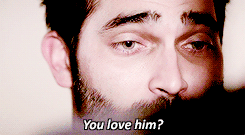

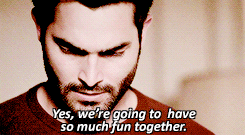

#not mine#i saved these but the og post seems to be missing 👿#but they must be shared!!!!#unless op asks me to take them down#which I'll do#sterek#stiles stilinski#derek hale#possessed derek hale#possessed!derek#teen wolf#teen wolf au#tyler hoechlin#dylan o'brien#just to be petty on main I'm not deleting this
350 notes
·
View notes
Text
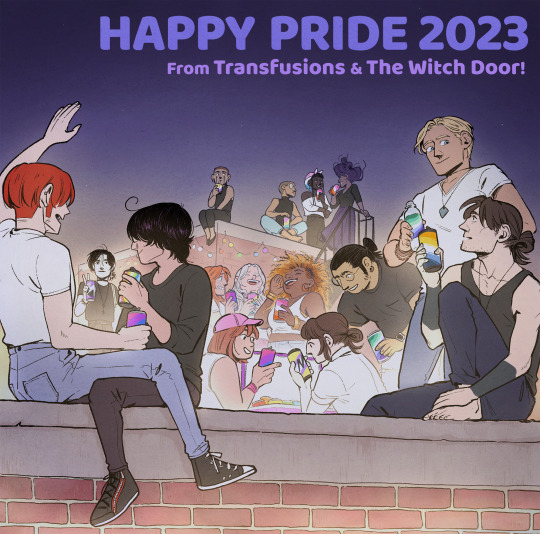
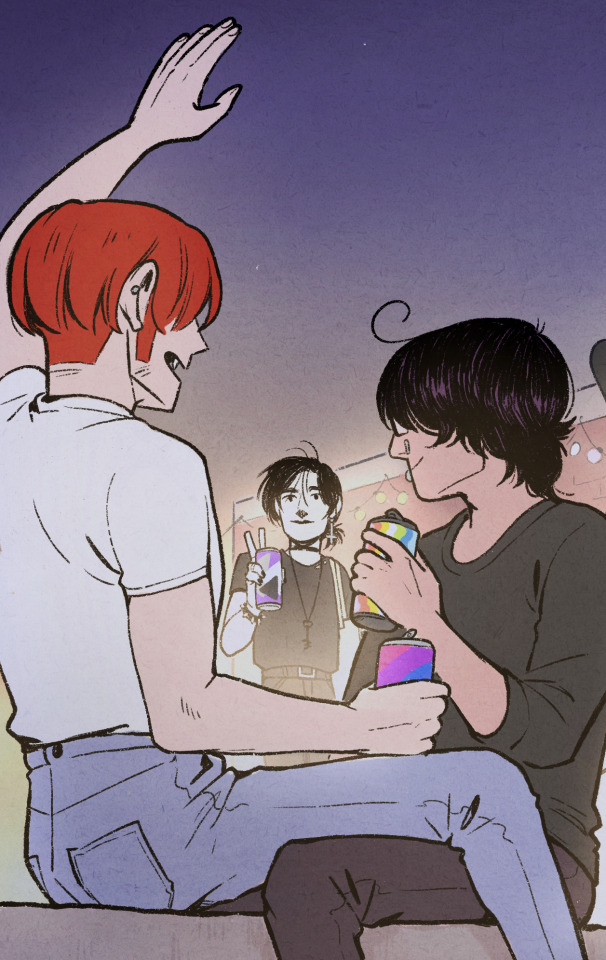
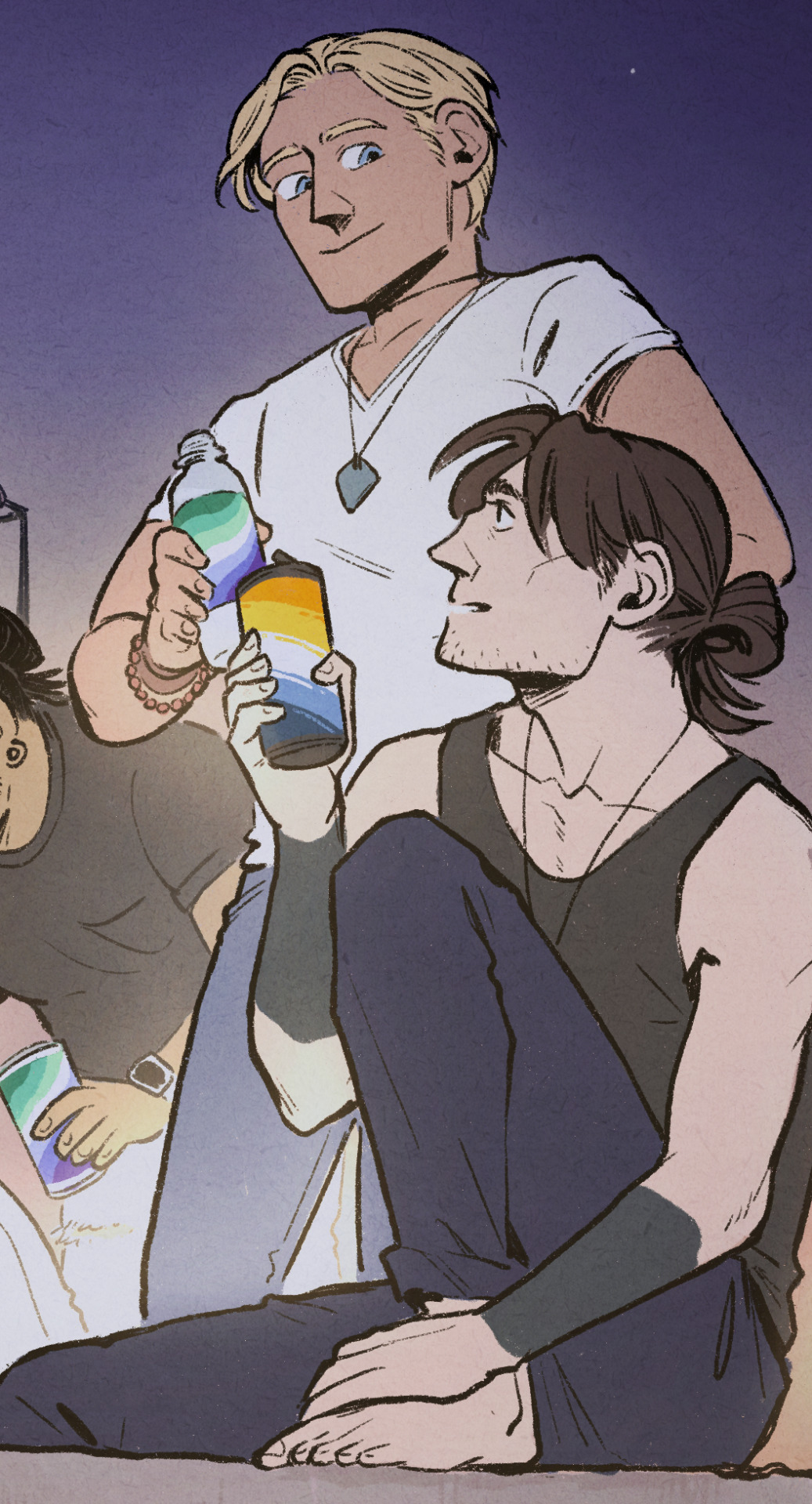


HAPPY PRIDE MONTH FROM ME AND MY DARLINGS FROM TRANSFUSIONS AND THE WITCH DOOR!
Grab yourself some gay juice and join in!
#Dylan's flag is the queer flag. lotsa people were asking last year.#Jousia's is AroAce#the witch door#transfusions#webcomic#bl webcomic#hiveworks#pride#pride2023#pride month#nn art
636 notes
·
View notes
Note
Just found out Dylan O'Brien is naked in a new movie!
As he should.

285 notes
·
View notes
Note
would you actually be willing to give like a pretty long rundown of those main guys from the 2015 draft class?? because i would be Very interested
Of course! I wrote this in a Google doc so I could get it all down. It's a LOT btw -- this is the abridged version, leaving out what are probably important details, and it's still [checks] 11k words long. Sorry about that.
Anyone who tells you that the draft is a science is an idiot not worth their twenty-dollar stadium beer. The draft has analytical elements, sure, but it is a crapshoot through and through. If you dare to take a look back on draft histories from the past ten years -- the past twenty, the past thirty -- only rarely is the first pick, the “best in show,” actually the best of his class. I mean, no wonder, right? How well can you determine how good a man is going to be at hockey when you have only seen him as a teenager? Accuracy and prophecy are not kin.
Every ten years, though, you come across someone whose trajectory is easy to map. A prospect who is so head and shoulders above everyone else -- in numbers, in the eye test -- that you cannot help but say that they are going to be The Next One. God save the poor boy you put that name on.
In this case, it is 2014, and they are speaking those words again. On the dingy ice of an OHL arena, a red-haired Toronto boy with scared fawn’s eyes paces around the circles, faster than anyone else in the building. There are articles written about him already, calling his experience the torture test and labelling him Jesus, the saviour, the new great. It will get worse for him from here.
A Generational Prospect
It is 2004, and all eyes are on Sidney Crosby. He has eclipsed QMJHL scoring records. He performs highlight-reel antics. It is known that he will make the NHL as a teenager, and that whichever team has him will have an asset they should not ever think to relinquish.
Now, in 2023, all expectations of him are blown away. He is fifteenth on the all-time scoring list, having played most of his life in the dead-puck era, and will be inside the top ten by the time he retires. He has never been below a point per game, having gotten to a hundred points as an eighteen-year-old rookie and only slowed down to ninety at thirty-five. He has won three Cups; two Harts; two each Art Ross and Rocket Richard.
Something similar can be said for his contemporary, one Alex Ovechkin, sixteenth in all-time scoring, second ever in goals. While neither were always the most singular, dominant player of the past eighteen years (has it really been that long?) their longevity and consistent high-level play have cemented them into that tier of all-time greats.
Such players only emerge once (or, for them, twice) in a generation; a “generational talent.” Gordie Howe was the first, before drafting happened at all, then Gretzky, joined as a part of the WHA merger, then Lemieux, then, debatably, Jagr through the early half of the dead-puck era, then Crosby and Ovechkin. Jagr was drafted fifth overall partly due to political constraints (it was 1990, and Czechia was behind the Iron Curtain), but all of the other drafted ones went first. While development curves for everyone else are hard to map, it is easy to tell, for them, how good they are as youths. We all call Gretzky the “Great One,” but he actually got that nickname before he was a teenager, because of how much better than the rest of his peers he was.
This is how we go up to the 2015 draft. Let’s say that it is September 2014, a full hockey season before the draft, so we can set the scene. Go back to the dingy Erie rink, watch the red-haired boy speed around the ice.
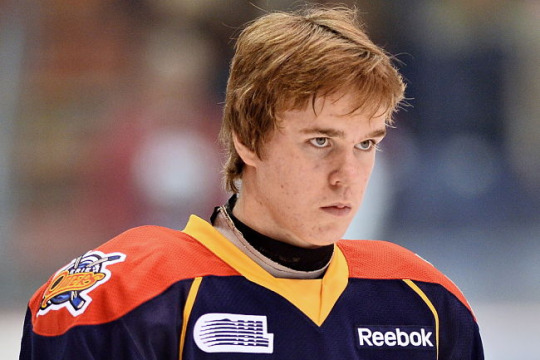
This is Connor McDavid. He was born in January just outside Toronto; if you are unfamiliar with the term “GTA,” I will pause now to tell you that it means Greater Toronto Area, and that it is the nexus of all hockey in the world. He is a Leafs fan, as so many of the GTA hockey-playing hopefuls are.
Connor is an unusual child, even by young hockey prospect standards. Entry to any of the CHL major junior leagues -- the OHL, the WHL, the QMJHL -- starts at sixteen, but select few can apply early, and if they are academically, physically, and emotionally deemed adept they can be accepted for exceptional status and join at fifteen. This happens once every two or three years nowadays; Tavares and Ekblad were the only ones to predate McDavid. As well as being deemed exceptional by the board of the CHL, he is exceptional among peers, too: intelligent and analytical, black-and-white, painfully shy. He works hard in school, desperate to avoid coming off as a “dumb jock.” Media interviewers ask for him, but they have to change the settings on their microphones in order to pick up his voice, it is so soft.
He has already won trophies; scholastic achievement, sportsmanlike behaviour, CHL rookie of the year. He will score at least one point in all but one of the first eighteen games of the 2014-15 OHL season, before breaking his hand in a fight (getting himself a Gordie Howe hatty, being that he already has a goal and an assist). He will score a hundred points in thirty-eight games, and a hundred and twenty points in the forty-seven games he will play.
Understandably, his name is penned in at number one on the draft board. Even such deficits as breaking a hand and being out for six weeks don’t tank his stock, it is so obvious how well on track he is to outpace all but the best.
He is sweet and shy, a captain of Erie based mostly on skill, and tight-laced into the destiny of future franchise saviour.
At least he has a friend, though, right?
Dylan
The 2014-15 Erie Otters are a good team. A great one, even -- third in league standings by season’s end, and you don’t get that far if your single generational superstar is sidelined half the year with a hand injury.
This is where Dylan comes in. Like Connor, he’s a GTA boy, and a young Leafs fan. Unlike Connor, he’s part of a serious hockey family -- the middle child of three. His older brother Ryan has already been drafted, in the first round, no less. He’s a real student of the game, too, a stats obsessive and a calm, steadfast personality.
Remember how we said the draft is a crapshoot? That’s very true. Prospects may have precise rankings when all is said and done, but in the meantime I find it best thinking of them as instead arranging into tiers -- there’s the generational talent in this year, but disregarding him we have a first overall-level, then a small handful of top prospects. Not saviours in their entirety, but certain to make a team very happy. Dylan projects as the latter group -- he’ll be somewhere between three and five. In 2014-15, he’s the OHL scoring leader, and takes the Erie Otters’ single-season record.
He and Connor are also best friends. Connor’s quiet, anxious even, but Dylan has a coolheaded sort of confidence that brings out the best in him. Rarely are they pictured without each other; rarely are they spoken to without mentioning the other. There’s a sweet little video out there of the Otters going to New York state and going on this little ziplining/outdoor climbing gym, and Connor and Dylan are about as glued to each other’s sides as you can be while obeying the harness safety rules. In hockey terms, while a little young for it, they’re married. Much like Crosby and Malkin are, although over a much shorter term, and publically the two Otters are much closer.
Dylan is the one I feel as if I can talk the least about. He is mostly defined by what he is not: not Connor, to start, and before the actual draft takes place that is the most of it.
Of course, that’s the most of what any of it is, isn’t it? These are teenagers, separated into imprecise tiers and mostly defined by which tier they slot into. The three boys below Connor, no matter how good they are, are defined by being not Connor.
Jack Eichel most of all.
Jack, to start, is American, unlike any of the other three. He’s a late birthday -- born in November of 1996 instead of the first eight and a half months of 1997 -- so he’s, in theory, had another year to adapt. (Brief footnote: the September 15 cutoff is what determines draft eligibility, either the year you turn eighteen or the year you turn nineteen. If you were born in, say, June of 2000, you would be eligible for the draft in 2018. If you had the audacity to be born in October of 2000 instead, you’d have to wait until 2019.) His development pipeline is also unlike the others, having come up into the NCAA, college hockey, and playing at the US National Development team before committing to Boston University. He won the Hobey Baker award as a freshman, and led the NCAA in scoring as a rookie.
He was marketed, coming into the draft, as the American Connor -- the new face of American hockey, a homegrown star, a fellow generational talent, although that was a feeble marketing strategy to dull the disappointment of going second to greatness. He was proud and polite, quiet but not scared, a young man uncomfortably aware of his own myth and rather irritated at the fact he had a myth in the first place. Taken in and treated well, he would probably have a well-suited disposition to a high-stress, playoff-bound team.
It’s unfortunate that that wouldn’t realize until eight years after he was drafted.
The Draft Itself, or, What Caused All These Problems In The First Place
The draft lottery rolls around. The lottery and the draft take place on different days -- the lottery several weeks before, so that for a long time the boys have an idea of to whom they will go. The first four teams to pick are, in order:
Edmonton. Edmonton had been very bad, for a very long time, and had three shiny prizes already to show for it: Taylor Hall, drafted first overall in 2010; Nail Yakupov, drafted first overall in 2012; and Ryan Nugent-Hopkins, drafted first overall in 2013. I’m sure you already know this, but Edmonton was Gretzky’s team, while Gretzky won all his cups, and they now stand to get themselves another generational talent in Connor McDavid.
Buffalo. The Sabres have a few decent pieces: Ryan O’Reilly, Sam Reinhart. They haven’t made the playoffs in a few years, and have plummeted to the bottom of the standings, finishing thirtieth out of thirty.
Arizona. Arizona has never gotten off the ground, not once. They are a dust mote of a franchise, held in place by Gary Bettman’s fragile ego and the skimmings of Original Six markets. Their survival, as doomed as we know it is, is banking on a distant hope of good prospect luck and better PDO.
Toronto. While Arizona is the smallest of small markets, Toronto is… well, it’s Toronto. Remember earlier, how I said that the GTA is the nexus of hockey? Toronto is called the Centre of the Universe, and for good goddamn reason. The Leafs are one of the most storied franchises in the NHL, and simultaneously one of the winningest (the second-most Stanley Cups, after Montreal) and the losingest (their most recent Cup was almost sixty years ago.) Their fanbase dwarfs all but the most hardcore of French Canadian separatist contingents. There’s a common phrase now, when any hockey news is mentioned -- but how does this affect the Leafs? It’s well-done satire.
And with four teams, we have four boys. So I come upon the last one now: Mitch Marner. Mitch, like Dylan and Connor, is a GTA boy, a born and raised Leafs fan on an OHL team. He plays for the London Knights -- a diminutive forward (he weighs in at 160 pounds soaking wet at eighteen, and eight years later barely cracks 180) with fantastic playmaking skills, the creativity and gall to do things other players have never even thought of. He’s a sweet one, too, bubbly and energetic and cuddly and kind.
Here is how the draft goes:
The Oilers take the stage first, for the fourth time in six years. The ceremony is unnecessary. Connor McDavid is the name everyone knows they will say. Connor walks up to the stage, looking vaguely nauseous, and dons the jersey and the hat. (His facial expression in the interviews afterward is thoroughly dissected over the next eight years. Some say it’s simple stage fright; others say it’s personal distaste for the Oilers -- remember, Toronto boy, Toronto heart. I choose to believe it’s the first one. Not all of us are John Tavares.)
After a first-round prospect is chosen, they bring him down for an interview, then shuffle him off to some arena underbelly for photos upon photos. Connor performs his niceties, but before he is taken back, he asks to stay. He wants to watch Dylan get drafted.
The Buffalo Sabres come second, and pick Jack Eichel. Eichel is asked, throughout, how he feels about Connor, being behind Connor, coming second to Connor. The narrative being pushed is called McEichel -- the Canadian wunderkind versus the American one -- and he wants no part in it. He’s impressed by Connor’s play, in their few brief meetings he thinks of him as nice enough, he wants to carve out his own path.
This refusal to play along may have been the start of the discontent, in hindsight. The media clearly wasn’t going to get anything out of soft-voiced scared-eyed perfect Canadian boy Connor, but Jack, sharper edges and colder heart, might be good for a soundbite or two about this new league-made rivalry. Jack, though, ever aware, puts himself solidly into Generic Hockey Interview voice and backs off.
The Coyotes come third. Here is where a choice occurs, the first genuine decision. Connor McDavid had been slotted into first pick since the day he got accepted for exceptional status. Eichel had taken a few years more, but his place in second after Connor was well known for months on end. Dylan and Mitch, however, were up in the air. Do you pick the big one with more points, or the small one with star power?
The Coyotes follow the conventional hockey wisdom, and take the big boy. Connor waits to watch his friend take the jersey, then hugs him in the wings.
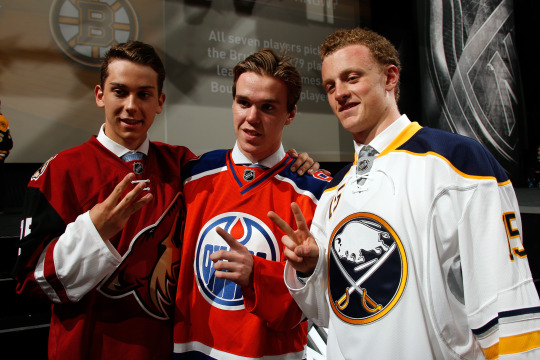
Finally, the Leafs.
Let’s actually take a step back to talk about the Leafs rebuild, for a second, because it, like everything the Leafs have ever done, is a testament to failure. Also, somewhat, because it is relevant. Also, moreso, because I can’t shut up about hockey and you’ve asked me to talk as long as I like. If you’re still reading, I want you to know that a) I am ever thankful for your time and b) we’re, like, just getting started here.
The Leafs’ last contending era was before the 04-05 lockout season, which means it predates the salary cap. They struggled in the midsection, for a long time, then finally fell enough to gain the fifth overall pick in 2008, with which they selected a big tough young defenceman named Luke Schenn, the first official piece of the Leafs’ rebuild, strange as it may be. Luke, while competent enough, was obviously not the sort of franchise-changing star the Leafs needed, and they struggled in the midsection again, before gaining, once more, the fifth overall pick, with which they selected Schenn’s partner, one Morgan Rielly. The two would be perfect partners, but we won’t know this for eleven years. Luke was traded twelve hours after Rielly’s draft.
Rielly is still in the AHL the next year, 2013, when the Leafs make the playoffs. This is the infamous 4-1 series: the Leafs go down 3-1 in the series, claw their way back up to game seven. They gain a 4-1 lead, going into the third period, and then blow it completely and lose the game, and the series, in overtime. They do not make the playoffs in 2013-14, and before the 2014-15 season begins they change management. The man they install as President decides to tank, and tank hard, selling as much of the Leafs as he can in the hopes of landing that elusive first pick.
They end up with fourth overall, and Mike Babcock, the Leafs’ head coach, does not want Mitch Marner, instead asking the then-management for the bigger defenceman, a boy named Hanifin who will go fifth to the Hurricanes. The Leafs take Marner anyway. Watch him as his name is called. He, like the first three, sits in a nest of other prospects and their families -- Mitch actually sits right behind Jack Eichel -- but unlike them, when his name is called the other prospects lean over to offer him congratulations, as well as his parents and brother. Mat Barzal, from across the aisle, offers a bro-hug as Mitch goes by.
The rest of the draft goes as usual. The 2015 draft, beyond narratively, is one of the deepest drafts in recent memory; players you may recognize include Timo Meier, Mikko Rantanen, Travis Konecny, Sebastian Aho (the Carolina one!), Roope Hintz, Kirill Kaprizov, Troy Terry… the list goes on. These players have their own stories, but few really tie in to this one. (So far.)
Summer passes; we move on. Training camp rolls around.
Connor McDavid, as expected, makes the team. He moves in with Taylor Hall, a fellow first overall. Jack Eichel also makes the team.
Dylan and Mitch do not. Dylan’s reasons are unknown to me, but Mitch is sent down because, again, Babcock does not want him. He’s naturally undersized and does not have a frame that builds muscle; Babcock is not under the impression that young men in Mitch’s image make good hockey players. Both Mitch and Dylan are returned to the OHL.
The stage is set now; each boy has a team. Eight years on, only half of them are on those teams. But we can’t worry about that yet! We have to make it to the NHL first!
World Juniors and the Memorial Cup
Once Connor makes the Oilers, Dylan Strome is named captain of the Erie Otters. Very cool, to only get what you deserve after the golden boy is gone.
Jack and Connor are off playing with the big boys. They’ll get their own section later -- we have to work our way up, not up and down and up and down. I’ve got to be somewhat cohesive, you know? So, we’ll stay, for now, in the world of junior hockey.
The Otters and the London Knights, Mitch’s team, are in the wonderful circumstance of not only both being very good at the same time, but also being in the same division as one another. This means they see each other quite often (no plane travel in the OHL. Bus only.) and have thus formed… a bit of a rivalry. It is becoming difficult to dance around: Dylan Strome, despite the politeness they’ve shown each other at the draft, hates Mitch Marner.
And why wouldn’t you? He’s the one Dylan fought with all last season for the OHL scoring title; he’s fast on his feet and can shoot from impossible angles; he makes plays you’ve never even considered, much less considered possible. He dangles through the Otters and scores the easiest impossible goal you’ve ever seen and laughs as light as air about the whole thing. And he’s tiny. Unfortunately for the rest of us, Marner drew a lot of comparisons to Patrick Kane in his junior days -- thankfully without the character in common, but as a hockey player. An undersized (almost comically so) London winger with otherworldly ability to manifest scoring chances out of nothing. The exact sort of irritating worm that not one of us wants on the other team.
So, of course, they get put on the same team.
The 2016 World Juniors are summoned. Connor McDavid, then dealing with a broken collarbone and a great deal of pressure, is not on Team Canada’s roster. Dylan Strome and Mitch Marner both are. Suddenly and thankfully, the media’s focus shifts from one, false rivalry in McEichel to a very very real one.
I don’t want to dismiss what happens next as a mere symptom of the fact that hockey players are engineered to get along with their teammates, even if they don’t like each other. Admittedly, it does start that way -- Mitch is a winger and Dylan a centre, and both skilled, so the coach puts them on the same line. Simple enough. And then they spark up a friendship.
Dylan’s reasons for hating Mitch were not personal, just hockey-related. Dylan hated Mitch because he was good and he knew it, the simple way a teenager hates their direct competitor. On the same team, though, the competition aspect is removed, and the barrier for hatred is gone. This is the Dylan/Mitch enemies to lovers arc, if you want to put it that way.
Mitch, for the record, I doubt ever hated Dylan. He doesn’t have that in him, never had. He saw a rival, sure, and as soon as that rival wore a matching jersey I assume he taped the word friend over whatever defined their relationship before. Mitch is probably one of the most gregarious, friendly, charming hockey players out there. Beyond his cute little face and on-ice highlights, even. He’s loud, sure, but when he talks he knows how to include you. He finds out what you like and talks about it, he singles you out if you’re shy and builds up your confidence. He’s just plain nice.
Dylan, like the rest of us, was charmed. Within weeks he went from calling Mitch annoying to telling us all about how he loves cuddling (!?) with him. They became fast friends and great linemates.
Dylan’s not the only one Mitch Marner befriends at Worlds, though. Somewhere between matches, Mitch takes an elevator at the complex they’re staying at, and ends up sharing it with a boy from the American team, a tall square-jawed Mexican centre with a Justin Bieber obsession. This is Auston Matthews, one of the projected top picks of the 2016 draft -- born just two days after the cutoff that would have made him eligible to go in 2015. He played with Jack Eichel at the USNTDP, before taking his age-eighteen year to go play pro in Switzerland. He holds the NTDP scoring record as a seventeen-year-old, and will continue to hold it until Jack Hughes breaks onto the scene. The two boys in the elevator do not yet know it, but they are about to share the mantle of franchise saviour, for the franchise most desperately in need of saving.
Either way. The Canadians place sixth at World Juniors, the Americans do better, the Finns win the whole thing. (In the long run, Laine turns out not to be better than Matthews after all.) Mitch and Dylan go back to their OHL teams.
Erie and London tie in points that year, but London wins the OHL title and goes to Alberta for the Memorial Cup, the CHL trophy. Mitch Marner takes home the scoring title, the Stafford Smythe (CHL equivalent of the Conn Smythe), and the Memorial Cup itself. He is one of the most decorated winners in OHL history, touted as being clutch, creating magic, and racking up points. He has close friends in Dylan Strome and fellow Knight Matthew Tkachuk, who will be selected sixth overall in the 2016 draft, the second American after Auston Matthews himself. And when NHL training camp rolls around in the fall, even Babcock cannot deny he is ready, no matter how slight he may still be.
Connor Complex
There’s nothing that fuels story like a good rivalry, and the NHL was obsessed with marketing this rivalry. The Canadian versus the American. The perfect child of a long line of red-blooded southern Ontario tradition versus the Boston boy with a chip on his shoulder. Jack and Connor, Connor and Jack. They hyped Jack up the time leading up to the draft, trying to hint that he was almost as good -- no, just as good -- as McDavid himself.
He was not, and everyone knew.
The 2014-15 Sabres, then the worst team in the NHL and having done an elite job at tanking (they are one of the worst teams in the analytics era, besides the 2022-23 Anaheim Ducks -- I wonder what prize might be waiting at that number one spot? Surely not someone named Connor.) wanted McDavid. The Pegulas, the owners of the Sabres, tried to hide their disappointment in him as pride. They had an all-American star, they said, someone who had grown up not too far from Buffalo himself, and in the same country, no less. He would be the sort of man to lead them into a new golden age, away from the misery of the tank years.
And yet the narrative persisted. McEichel, they whispered. Look at how good Connor McDavid is, and look at how much Eichel is not him. McDavid, they say, McDavid McDavid McDavid. No article could be written about Jack without mentioning how he came second to Connor.
The Sabres tried to quell the whispers. Look at our boy, they say. They signed Eichel to an eight-year, ten million dollar contract, and in the beginning of the 2018-19 season they named him captain. Isn’t our boy great.
The team does not improve. The Sabres hadn’t made the playoffs for three years when they drafted Eichel; they still haven’t made the playoffs today. I wasn’t around to look, but the team was bad. Eichel did his best, but he was young and inexperienced and did not -- never did -- have captain’s blood in him; Ryan O’Reilly lost his love for the game.
The whispers of character issues start to come out. Jack Eichel is a “locker room cancer;” he’s selfish, stuck-up, quick-tempered. He’s caught in a cage where the only key is to be Connor, something which he never wanted to achieve in the first place, and never could have even if he did want it. The whole narrative was completely fabricated. He liked Connor well enough when they met.
I do imagine he has feelings about it, though, and feelings about Connor now. He didn’t know him, not enough to have an opinion on the boy, but the name followed him around long enough for him to think about it. Imagine it. You’re good in your field, great, even. You’re doing well enough to earn yourself a superstar contract, you’re an All-Star, and yet the only way you will get any recognition at all is when they say that you are worse than one of the greatest players ever to play the game. They lock you into a connection that you have never wanted, barring you from forging your own path. You exist permanently in that orange-and-blue shadow. I don’t blame Jack for being angry. I would be too.
Babcock
Auston Matthews was incredible from the jump. He was big, he was strong, his wrister is the stuff of legend. He won the Calder in his and Mitch’s rookie year, by a not insignificant margin, well ahead of Laine. He was a coach’s dream doll, unusual enough to be marketed and good enough to be useful. Unavoidably masculine even at nineteen.
Mitch less so. Mitch is still small, remember, and struggles to gain weight. I know I talk about his size a lot, but it’s genuinely important. Hockey and its fan culture has long been a group that prioritized size and raw power above all things. Mitch possessed neither of those things, and when he struggled with gaining muscle it was seen as an unwillingness to try. If you know anything about the ability of our bodies to gain or lose weight, you know that it is simply a genetic roll of the dice, a scale that puts a little bit of us into the “gains muscle mass easily” category and decides when to stop. Most hockey players actually aren’t very far up the muscle-gaining spectrum, especially when compared to American football or baseball players -- mass is strength, yes, but it’s also more to move around on ice -- but Mitch is especially low on the scale. Because of this, he is seen as unmanly, a dangerous thing to be.
The Leafs media market is a nightmare, and always has been. Because this is the Centre of the Universe, there are more eyes on the Leafs than on any other team. More eyes mean more writers, means you have to say weirder and wilder things to beg for clicks. Outrage is a good marketing tactic. Getting mad about one of the prize prospects seemingly not wanting to bulk up for the good of the team is a very easy thing to do.
What’s more, Mitch, after his entry-level contract had expired, had had a very difficult and long-drawn out contract negotiation, asking for a lot of money -- essentially the maximum that the Leafs could afford at the time. Because of the salary cap constraint, this was seen as kind of selfish. The angry clicks move. Mitch is sensitive, they say. Soft, selfish, weak.
It’s easy enough to dismiss out of hand when your uncle from Belleville does it, because what does he know. It’s different when it’s the head coach of the Leafs. Mike Babcock, is, at the time of hiring, the highest-paid coach in the NHL. He was signed before the 2015-16 season, and at that point had an eight-year contract, which would have carried him up until this year.
Mike Babcock sucked. Structurally, his teams were fine -- the Leafs made the playoffs in 2016-17, and haven’t missed it since, but he was awful, horribly mean to the boys under him, and especially, especially Mitch.
We should skip ahead a little bit. It’s the beginning of the 2019-20 season. The Leafs have made the playoffs three times already, and lost in the first round each time -- but this, too, is not yet a phrase that strikes worry into our hearts. They’re young, and they have plenty of time left.
Respected veteran Jason Spezza came home to the Leafs, having spent his career -- a player who might squeak the Hall of Fame, but is more likely just below its level -- in first Ottawa, where he was the captain of the Senators briefly and one of its most well-loved players, and then Dallas. Like the boys I talk about here, Jason Spezza is a former OHL player, a GTA boy, a Leafs fan. The Leafs’ season opener is against Ottawa, the team where Jason Spezza left most of his mark. There used to be a promotion with the Senators -- a local branch of some pizza chain would offer a free slice if the Sens scored more than five goals in a game. Spezza (and his linemates, Heatley and Alfredsson) were so good, they named his line the Pizza line. Mike Babcock makes Jason Spezza a healthy scratch on that day.
This is seen as disrespectful, but no more than a coach living up to his hardass reputation. You do what the coach tells you, don’t you? Lest you become a whiner, or worse, a locker room cancer. Scratching an extremely well-respected veteran on the opener against his former team is just something some guys do. A message, if you will. Stay the course, Babcock just wants his players to respect him.
And then news of the list leaks.
It happened when Mitch was a rookie, but they kept it hidden for three years. The Leafs went on a father-and-sons trip, one they do every season. They’re on a road trip, with only their fathers, isolated from their home.
(A brief aside to talk about Mitch’s dad; his name is Paul Marner, and he is the most stereotypical hardass hockey dad on the planet. A nitpicker, an armchair coach, a bully. I do not imagine Mitch felt particularly comforted by his and Babcock’s combined presence on this trip.)
Babcock approached Mitch and asked him to organize all of his teammates in a list. He wanted Mitch to arrange them in order of hardest workers to laziest; he thought Mitch was one of the lazy ones, and wanted to drive this point home by making him categorize his teammates like this. Mitch, as a rookie hockey player does in the presence of the Maple Leaf hanging over his head like the sword of Damocles, obliged. He was under the impression it would be a private affair, just an assignment from Babcock to teach him some sort of lesson. Whether it be out of fear or honesty, he placed himself last on the list.
Babcock told the others.
Specifically, two Leafs vets that Mitch had placed low on the list -- Nazem Kadri and Tyler Bozak. Imagine this: you are a decent centre on a bubble team, but nonetheless an established NHL veteran of about a decade, and your coach shows you a list a rookie made. He tells you that the rookie arranged everyone by work ethic, grinders to lazy shits. You are firmly on the “lazy shit” end.
How much does the coach have to suck, or how much does the rookie have to be loved, for Kadri and Bozak to react like they did? The rumour says they called for Babcock’s head on the spot. Mitch was in tears. I wouldn’t want to stay in Toronto if that happened to me. No wonder he and Auston signed for so much -- Babcock was barely halfway through his contract when they did. If I’d thought that I would have to deal with him for that long, I wouldn’t accept anything less than as much as they could possibly pay me.
In the end, in the beginning of December, 2019, Mitch got hurt and the Leafs went on a road trip. They were already losing by the time they’d left, and they kept losing. Normally, a team on a road trip doesn’t take the hurt players with them, but they took Mitch. The Leafs lost six in a row and finally fired Babcock, letting Sheldon Keefe take his place. Mitch’s presence was a comfort.
Go West
The Leafs make the playoffs first, and take Mitch with them. The Sabres are fighting a silent war with their star centre, but they are no closer to success.
Connor McDavid is named captain at nineteen, the youngest in the history of the NHL. He scrapes the team to a playoff spot, then to a second round loss. He wins the Art Ross and the Hart.
The year before his entry-level contract expires, when he is first eligible, he signs what is then the most expensive per-year contract in NHL history -- eight years, a hundred million dollars. He is looking forward to spending the rest of his prime as an Oiler. He wins the Art Ross the next year, comes very close the year after. The Oilers do not make the playoffs again until after Covid hits.
He gets hurt a lot, too -- he breaks his collarbone as a rookie, missing half the season, and at the very end of the 2018-19 year, crashes into the net irons and shatters his knee. There are rumours of the man who broke Connor’s collarbone doing it on purpose; Connor claims that he overheard the man bragging about it, and I am inclined to believe him. This guy gets traded to the Oilers not too long after that.
In the meantime, Dylan is struggling. The Coyotes stick him in Tucson, a team he is obviously too good for. His entry-level contract slides another season. He wiffles between Tucson and Arizona, not being considered good enough to stay up but being too good to stay down. In the end, on the last year of his entry-level contract, he is traded from the Coyotes to the Chicago Blackhawks, a similarly bad team with a few remnants of its Cup-winning days. Dylan, a feeble icon of Chicagoan hope for one last dance with the aging core, centres Patrick Kane.
In his first half-season with the Blackhawks, he scores 51 points in 58 games. There are hopeful flashes of what he can be, the touted prospect he once was.
Things wrap up on New Years like this: Connor is beyond a hundred-point pace; Dylan, although in no less danger, is at least out of the dust at the bottom of the barrel; Jack is caught in a cold war; the team loves Mitch.
John Tavares has a Terrible, Horrible, No Good, Very Bad Playoff Series
March of 2020 rolls around, and with it the coronavirus pandemic. The league is shut down before the season ends, and the playoffs re-formed in July, inside a bubble -- no one in, no one out until they are eliminated. The Sabres stay with their families, having once again missed the playoffs. The Leafs are set to play the Columbus Blue Jackets, and the Oilers are set to play the Blackhawks.
This, to date, is Dylan’s only playoff appearance, and he is set to face Connor.
Dylan wins.

The qualifying round -- functioning as the first round of the bubble playoffs -- is a best of five, not of seven, and the Blackhawks defeat the Oilers 3-1. They then proceed to lose in five games (this one is a best of seven) to Vegas, but Dylan’s job is done.
The Leafs lose in the first round again. The Leafs have made the playoffs since Auston and Mitch’s debut, every single year, but they lose each time; in six, to the Capitals, then in seven every year after that. Or, in this case, in five.
Covid had not stopped by the end of the 2020 season ( :/ ) and the NHL was rearranged for what would be ostensibly the 2020-2021 season, but ended up being played mostly in 2021. Because of border laws, the Canadian teams are sequestered into their own, North division. Dylan Strome signs a two-year contract extension with Chicago right before the season starts -- one that will carry him until the end of the 2021-2022 season.
If you’ve seen All or Nothing on Amazon Prime, it is this season that is covered. The Leafs tear through what is seen as a weaker North division, taking a comfortable first place spot. Connor McDavid cracks a hundred points in fifty-six games. Both Leafs and Oilers lose in the first round.
The Leafs do it perhaps most remarkably. They have drawn the Canadiens, a rather insubstantial team who are in their spot mostly because they have one of the best goaltenders in recent memory at their back.
I watched this game, live, before I was a serious Leafs fan. I can only imagine what it would be like if you were already invested at that point; I would not wish to live that horror on anyone. I tried to watch All or Nothing, later, but I stop here.
Corey Perry and John Tavares are both on the ice, in the race for the puck. Tavares catches an edge, as you sometimes do, and falls, and Perry’s knee is in exactly the wrong place at exactly the wrong time, and it catches Tavares in the side of the head. He falls to the ice, his limbs splaying unnaturally. He won’t move.
Medics come over, to try and raise him to his feet. He fights against them, blood streaming from a cut in his forehead, unable to tell if they are trying to hurt him or not. There is no one in the crowd, the stadium empty for the pandemic. The camera cuts to Kyle Dubas in the rafters, who has a phone in his hand and swiftly vanishes back into the halls of the arena. He is calling Tavares’ wife. We do not know what is going to happen. Everyone looks shaken -- the Habs have just watched a man nearly die, the Leafs have just lost their captain, perhaps forever. They lose, although the game feels like an afterthought. I do not want to watch hockey anymore.
They win the next three straight, though, even without him. Then they lose, twice, in overtime.
The Leafs, as they have done for the past four years up to this point, go to game seven.
Partway through the game, Mitch Marner panics in his defensive zone and puts the puck over the glass. This is a penalty, it is a penalty every time, and he knows that. He sits in the box, looking defeated already. He curls in on himself, and the camera flashes to the penalty box. He’s crying. He knows the game is lost.
The Leafs are eliminated again, and there is a target on his back now, not only for the puck going over the glass but for the tears. He’s soft, they say. As they have said since he was picked, because he doesn’t look like a hockey player should, because he doesn’t act like a hockey player should, because he doesn’t play hockey like a hockey player should. He makes too much and he disappears when it matters.
Thoughts on the Leafs’ playoff successes suddenly switch from the core is young, even if this is frustrating to they need to win before it’s too late. Already, in recent years, they have suffered historic game-seven chokes and drastic failures to launch. Whether they do it against teams like the President’s Trophy-winning Capitals or the barely-alive wild-card Canadiens is irrelevant. They cannot win a round, at all. The Leafs are already the team with the greatest Cup drought, and they are now gaining a long playoff round victory drought too. It should be time, at least, for them to look like they are a contender.
This is how the Leafs find themself stuck; a particularly frustrating timeloop, even though hockey itself is nothing but. Sports are cyclical by nature. A team is bad, then okay, then good, then declining, then bad again, and this repeats anew. Some teams try to get themselves out of this cycle by being good forever; I can assure you that this only really happens to the New York Yankees, who employ a cadre of evil wizards to keep everything on that hell team going well for them. Most other teams who try end up stuck like the Canucks are, right now: bad enough to miss the playoffs, but not good enough to get key picks for a rebuild. I can see next season play out, clear as day: they struggle out of the gate, one of their stars gets hurt right when it seems like they’re at the very, very start of gathering momentum, they’re bottom-10 by January and the team says everyone but Pettersson are on the table, they trade picks and low-grade players, they get blazing hot post-deadline and finish twenty-first.
There is, unfortunately, also a perception that pure talent is not what makes players playoff performers -- instead, some so-called “clutch gene” that exists, or not. The reality is somewhere in between. Clutch exists. There are always players who can score when no one else can even dream of it, but a greater problem is luck. President’s Trophy winners are not often Cup winners (even if higher seeds are most likely to win), because the regular season is a much, much bigger sample size and the playoffs can change the course of all of it by a goalie having a hot streak at the right time. The 2018-19 Tampa Bay Lightning, third-best team in NHL history, got swept in the first round by Sergei Bobrovsky going crazy. The 2022-23 Bruins lost in seven in the first round in much the same manner.
And no matter what, the Leafs are always on the wrong end of the luck. Bounces hit the post. The refs take back goals for reasons they would have ignored at any other time of year. John Tavares slips, and his head makes contact with a knee.
Mitch ends up the whipping boy. He is the Leafs’ most valuable player, and this is a team with Auston Matthews on it, but I’m serious. He was the Leafs’ leading playoff scorer in 2023, he’s one of the best penalty-killers in the league, he’s adored by everyone who’s ever once talked to him. He only ever wanted to be a Leaf, and now that he is here he is the sacrificial lamb for the anger at a curse that is not his fault.
I do blame the media. I will always blame the media, those who turn on him at a moment’s notice because they know picking on the skinny pretty unmanly one will get more clicks than anything else. I beg of you -- know that, of anything that it could be, it is not Mitch’s fault.
Jack Eichel has a Terrible, Horrible, No Good, Very Bad Neck Injury
It is 2021, and the Sabres aren’t going to make the playoffs. Jack Eichel has been captain for coming up on three years, and has been a Sabre for coming up on six, none of which have even slightly improved the team. He is widely disliked within the fanbase, and, rumouredly, within the locker room and organization.
Jack is frustrated, dragging a mediocre team along through a slog of the past six years, and he has never been the kindest man on the planet. He is about to get worse. The Sabres are on a losing streak when they head to Long Island, and Jack is hit the wrong way and slips a disk in his neck. The Sabres insist he’ll only be out a week and a half.
It is a great sin in hockey, to go against team. Anything that can be seen as selfish is demonized; shooting from a difficult angle when your teammate is wide open, not playing when you can muscle through the pain. Not trusting your coach or management is about as bad as you can get. If you’re a team guy, willing to sacrifice health and limb for the boys, you are held as saint, no matter how hurt you become in the end. This is a philosophy that has been drilled into these men since they were kids, as soon as they put their first skates on. You can stand any pain for the length of a hockey shift; you can play through anything for two minutes. It is a dangerous, dangerous school of thought, one of the most destructive parts of hockey culture. But it is, nonetheless, law.
Eichel is about to commit a sin so great they’ll kick him out of Heaven. I do think that, of the four of them, he is the only one with any semblance of genre awareness: when he was first scouted as a prospect and they were comparing him to McDavid, I think that he would be the only one to ignore the media’s spin on that as thoroughly as he did. He knows what he is, and he knows himself. Of course it comes off as bitchy and selfish, though -- that kind of pressure can’t be kind to anyone.
Before the week and a half is up, he visits a specialist doctor about his neck. This is where it all starts to go wrong.
The Sabres take issue with that for two reasons: one, that they hoped he’d be able to come back after the end of it. Keep in mind that he has herniated a disk in his neck, an injury typically so severe it’s impressive he’s walking -- slipping a cervical disk often causes nerve pain that radiates down through the entire spinal cord below that point, which is the whole body from how high up his is. Two, that the doctor he consults is an independent surgeon, one unaffiliated with the Sabres themselves.
The thing about belonging to a hockey team is that you are, because of the way your employment is linked to your physical health, essentially their property. They make your medical decisions for you, they feed you, they tell you how to move. Going to someone else is a breach of contract, and the already-tense connection between Jack and the Sabres gets more tense. The Sabres keep losing. They lose eighteen games in a row.
Jack’s doctor recommended a surgery that no NHL player has ever had; cervical disk replacement. The Sabres did not want this -- the surgery carries risks, yes, but they also wanted to control the way that Jack’s injury was handled, and going through with this surgery was Jack’s wish, not theirs. The Sabres do their own evaluation, and ask for a different, more common surgery: spinal fusion. This surgery carries less immediate risk, but the bones in Eichel’s neck will also be fused, and he doesn’t want that. Because the team has final control over a player’s health, not the player, they decline his disk replacement. Having reached a stalemate, they rule him out for the rest of the season, trying to win a war of attrition.
September 2021 rolls around, and the Sabres, along with thirty-one other teams, take training camp. At the beginning of training camp, players do a physical exam. Jack, because his herniated disk has not improved, because he needs a surgery that has been denied from him, because he is stubbornly and bravely willing to wait out the Sabres, fails his physical. As a result, the Sabres, fed up with him, strip the captain’s C from his chest.
Jack makes one final request to the team: either let him get the surgery or trade him. In the end, they trade him to the Vegas Golden Knights, a team that did not exist when he was drafted. The Golden Knights approve him for the disk replacement surgery the day they acquire him.
The surgery is a success; his rehab goes better than anyone expects, and he starts tearing it up when he comes back. I would argue that, if the Golden Knights win the Cup this year, he should get the Conn Smythe -- he has been an invaluable member of the team, even without a letter on his chest.
It is less important for him to win his million awards than it is for him to come in and out of this surgery in the first place, still able to play. He fought with the team that was supposed to have upheld him as their star for months over his right to do what he wanted with his own health; in the end, the only way to go was for him to change that team. He was the first to have this surgery, but after him there have already been hockey players who have undergone it -- much like Tommy John, the baseball player who got his ulnar ligament reconstructed and the surgery to do so named after him. He fought for the chance to control his own body and won.
And for that, he was demonized.
The Sabres missed the playoffs every year they had him; they missed the playoffs every year after he left. Because he was the captain and he had the audacity to go against the organization’s wishes, he was hated. In Buffalo, he is still hated. If you ask, they’ll tell you he was a locker room cancer, that he was undevoted to winning. If you look at him in Vegas, neither of those things are true.
Jack Eichel is a rare man -- he does have that “clutch” gene, or rather doesn’t have the choke instinct. He has always been unbothered by the spiral around him. He operates well in the mire, and when the pressure rises it doesn’t affect him (or maybe, even better, he feeds on it.) He has the right kind of mentality -- that fuck-you, I’m here and you can’t change that, you tried to control me and I wouldn’t bend mentality. He has only made the playoffs once, this year. Like Dylan, actually, his only appearance has involved defeating Connor McDavid. Go back and watch his highlights from the Vegas-Edmonton series if you can: he has a couple of pretty goals and more than a couple great defensive takeaways, but he doesn’t lose his cool, not once. He has earned his right to be here, and he knows it more than anyone else. I’m rooting for the Stars, but I hope he wins some day.
153
How do you talk about the Edmonton Oilers? I mean, without either excusing or demonizing them, although I admit I have Hater Instinct and trend towards the latter. They have the best player in the world; that grown-up incarnation of the wide-eyed boy on the Erie rink. They have the best playoff performer in the world; Leon Draisaitl, who I have not avoided mentioning until now on purpose, but whom I cannot continue without bringing up. They have been terribly cap-managed since the day McDavid was drafted, and are an unstable roster with blazing-hot offense and very little defence or goaltending at all.
For a brief moment, let’s not talk about the Oilers. Let’s only talk about Connor himself.
McDavid has 850 points in 569 career games. Not even Sid had that many points through that few games. If he stays healthy, Connor’s well on track to become the second player ever to hit two thousand for his career -- after a certain other Oiler, who need not be mentioned. He has won just about every award you can win, with the exception of the Selke… and the Cup.
If it’s possible, he has proven himself better than all of the hype at the draft saying he would become a great. To watch him, you can see the way he has changed his team, how even though they have all learned from him that he is still the best.
There is something that many Oilers do. When next your team plays them, pay attention to it: they cut into the offensive zone with possession on the outside, using tight little crossovers to gain speed, after which they’ll usually try to rush the net (if there are no defenders in the way). This is a move that McDavid has patented; he’ll use it, just as many of the others will, but he’ll probably be the one that scores. The depth all skate like him, really, fast and in wide arcs, trying to generate a rush chance.
Connor as a player is a tour de force, the best power-player in the world by a mile, no slouch at even strength, speedy enough to score even shorthanded. The boy’s got wheels. Sometimes it’s hard to tell which NHLers are fast and which are slow, but Connor’s just that tick above everyone else that you can see it without eye training at all.
Connor as a person is a bit less showy. He’s quiet by nature, shy and soft-voiced. Because he was hyped so much (franchise saviour, McJesus, Next One) he has been media trained into sterility, giving the same level answers as everyone else, hardly daring to express any opinion at all. His eyes are big, rounded, and one of them is lazy from a time when his brother tried to take it out as a child, and that combined with his heavy brow and stiff expression -- he’s never been a good smiler, smirks with one corner of his mouth and that’s mostly it -- give him a resting expression of something like concern, or maybe despair. When he laughs, he doesn’t really “laugh,” just kind of coughs, a one or two-syllable affair. He avoids eye contact with the camera, and often the reporters as well. There is no seething emotion under the surface, not like with Eichel, nor does he speak analytically like Dylan does. He moves through his life as if he is someone who does not want it to turn out quite like this.
I do not know if he wants to be in Edmonton. There are jokes about how he is desperate to leave, but I definitely don’t believe those; there’s a difference between not wanting to stay and wanting to go. I don’t think he hates it. He has been given a responsibility, the captain’s C -- and because, unlike Jack Eichel, he is a good Canadian boy who has been given a destiny, he accepts it. He loves his teammates, especially Draisaitl, whom he seems to derive all his confidence from.
I will also say that I don’t believe he’s stupid. Naive, perhaps; not stupid. There is no way out for him, even if he was sure he wanted to leave; he’s the best player in the world, far too expensive for any contender to afford in either trade or cap space, and if he asks for a trade he won’t let himself go to a team that isn’t already a contender. He will remain an Oiler at least until his contract is up, and I imagine that his staying afterwards depends on Draisaitl.
People talk about him leaving a lot, largely because of the team that has been assembled around him. The Oilers are not a well-created team, and I will say that plainly now and spend as little time technically deconstructing it as possible.
Beyond McDavid and Draisaitl, they have:
A rookie starting goaltender, whose success as we know it is based on a single-season sample size and a complete playoff collapse.
A five million dollar backup goaltender, who earned his contract by being carried by the Leafs, despite being utterly horrendous for a long enough stretch leading up to his free agency that anyone who looked beyond the win-loss numbers wouldn’t have signed him.
One genuine shutdown defender.
One young up-and-coming defender; by far one of the most promising Oiler (or otherwise) defensive prospects, beyond the usual suspects.
One netfront grinder who is great at playing wing to high-power setters, but cannot drive his own line.
One decent 2C.
Sarah Nurse’s cousin. Sarah’s better.
A supporting cast of bad defencemen and middling-at-best forwards.
Many charming characters, of course: Zach Hyman, the grinder, is a beloved ex-Leaf, and I’m personally a fan of Nugent-Hopkins, the 2C, but the vast majority of this is not the sort of thing a contending team is built upon. McDavid has missed the playoffs almost as often as he’s made them. The playoffs are a crapshoot, but in order to try your luck you have to at least be able to enter the lottery, and it takes a stunning amount of effort to be able to do that.
So, McDavid lingers, in this kind of limbo. It mirrors the Leafs, almost. (And yes. Because McDavid is an Ontario boy, and the Leafs are the Centre of the Universe, we have to mention them both in conversation. Not all stories revolve around the Leafs, but this one does.) One true contender, and one generational talent, both what we picture to be well overdue for their Cup run, but neither having yet done so.
The thing about the stories of the class of 2015 is that they intertwine, that they mimic and mirror each other. These boys have not simply gotten drafted in the same handful of picks in the same year and gone on their merry ways -- they layer, they parallel, they weave around each other. Connor is the captain of a team that cannot win, Jack is a captain, Mitch cannot win. Jack fought for the right to control his body and was demonized for it; Mitch negotiated for a contract that he determined to be a fair price for Babcock, and was demonized for it. Whatever pure saviour they figure Connor to be, Jack is the twisted inverse of that, falling from grace.
Connor has one of the best seasons in NHL history, one of only seventeen player-seasons with over a hundred and fifty points (Nine of those seasons belong to Gretzky. Another four belong to Lemieux.) He loses, in six games in the second round, to the Vegas Golden Knights. At the time that he’s eliminated, he leads the playoffs in points. Leon Draisaitl is tied for second place. Counting from the date Mitch Marner played his first game in the NHL, the Oilers and Leafs have almost exactly the same number of playoff game wins, with the Oilers having one more.
There’s No Place Like Strome
Before we can look to the future, there is one person I have been neglecting. Dylan, poor Dylan. I think it would be only half an unfair assessment to call him a draft bust. He’s talented, for sure, but not nearly the same calibre that the draftees around him are. Hardly a Marner, an Eichel, or even a Rantanen or a Meier.
His career has existed quietly in the shadows, so far from Connor McDavid that it only feels fair to mention them in the same conversation in this context. It has been eight years since they were best friends, Connor so close to Dylan he waited in the stadium in order to watch him get drafted. They didn’t look each other in the eye in the handshake line when Dylan won their series. Connor didn’t go to his wedding.
That being said: so far, he has found himself a knack for landing in the shadow of greatness. When he was an Erie Otter, it was Connor -- Dylan held the scoring title in their draft year, while Connor was out nursing his hand, but Connor was the chosen son and Dylan was the Coyotes’ consolation prize. When he was traded to the Blackhawks, he found himself centring Kane and Debrincat, but of course both of them were the offseason and trade deadline’s prizes, and not him.
And then he signed in Washington.
So now, we go back to Ovechkin. Alex Ovechkin is one of the greatest players of all time; his Capitals are on the decline now, but they contended for a long time while he was playing and may still contend as long as Ovi still skates. For a long time, the team relied on Ovechkin’s goalscoring, assisted mostly by his faithful centre, Nicklas Backstrom. They, too, are married; they have played a thousand games as teammates, been through a decade of heartbreak together before the Cup was theirs. During the 2021-2022 season, Backstrom took time off -- he needed hip surgery, something likely to end his career. Ovi was alone.
There is a fundamental difference, of course, between the expectations of wingers and centres. A winger, like Ovi, scores, or assists, at his own leisure, but it is the centre’s job to drive his line. Ovechkin is generational -- he will sink forty goals no matter what -- but he still needs someone to move him out of the defensive zone, someone to make his assist.
Enter Dylan -- a young centre, not especially fast on his feet but intelligent, and clearly experienced in the realm of managing high-calibre wingers (see: Debrincat, and the ghost of Patrick Kane.) He joins the Capitals on a one-year contract, desperate to prove himself. Chicago didn’t want him, and Arizona didn’t either. It takes barely until November before he is, once again, the necessary shadow of greatness.
Ovechkin, the team’s captain and centrepoint, clearly likes what he sees, and the management does, as well. The Capitals offer Strome a five-year extension.
Maybe it’s because he’s less of a superstar then the other three members of his draft class, but Dylan has a life outside of hockey -- a wife and young daughter. After being thrown away by other teams, and with his new family, I can only imagine that it was… peaceful, if anything, to be offered this contract.
Chicago, after rapidly getting rid of him, Debrincat, and then Kane, would go on to tank spectacularly, and win themselves the first overall pick. They will use it to draft another generational talent. His name is also Connor.

The Blue Wedding
So, here we stand, at the end of it all. Dylan finally has a home, a mother hen of a Russian bear that it has become his job to assist in record-breaking, and soon to be two daughters. Jack has a team that loves him, freedom from pain, and an ongoing potential Cup run. Connor has a sterile mansion, a best friend, and an unsteady team. Mitch’s life is up in the air.
Right as I’m writing this, the general manager of the Leafs has been unceremoniously kicked out. His tenure will end the day before Mitch’s no-move contract kicks in, but it is not known if Mitch’s time as a Leaf will survive that long. He is well on track to become one of the greatest Leafs of all time, and his tenure might be cut short in the prime of his career.
But let’s wrap up with this: Mitch will get married this summer. Because he’s Mitch, the darling of the league, everyone’s best friend, I imagine the wedding party to be extensive/ Packed to the brim of current and former Leafs, as well as people who have never been Leafs. I wonder if Dylan Strome will be there -- or even Connor McDavid, although McDavid never even attended Dylan’s wedding.
The stories, as they do, go on.
#asks#mitch marner#jack eichel#connor mcdavid#dylan strome#hope this helps and/or gives you brain poisoning#narrativeposting
699 notes
·
View notes
Text








i too would giggle incoherent things at johnny toronto if he were leaning over the boards to talk to me
(5/?)
#auston matthews#mitch marner#matthew tkachuk#connor mcdavid#matt martin#dylan strome#sidney crosby#john tavares#evengi malkin#toronto maple leafs#florida panthers#edmonton oilers#washington capitals#pittsburgh penguins#nhl memes#if these start to get old just chuck a bunch of tomatoes in my ask box
302 notes
·
View notes
Text
Bob Dylan admits to selling his soul to the devil for fame and riches.
This right here is the face of a man who knows what he did, understands why he did what he did, understands the consequences for what he did, but yet regrets what he did.
Some people still try to deny and find other explanations for what selling your soul means, when the man, plain as day is telling us all what it is.
You can see the regret in his eyes. It ain’t worth it 🤔
#pay attention#educate yourselves#educate yourself#knowledge is power#reeducate yourself#reeducate yourselves#think about it#think for yourselves#think for yourself#do your homework#do some research#do your own research#ask yourself questions#question everything#bob dylan#you decide#selling your soul#music industry
141 notes
·
View notes
Text
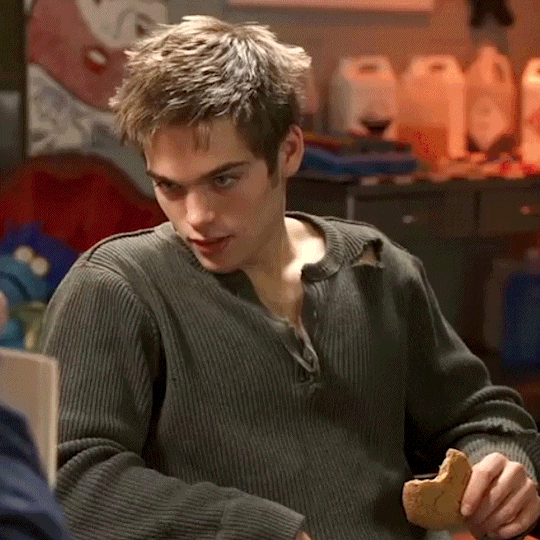
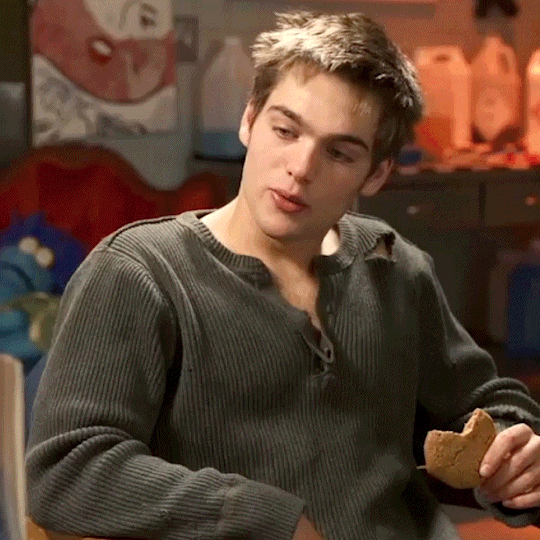
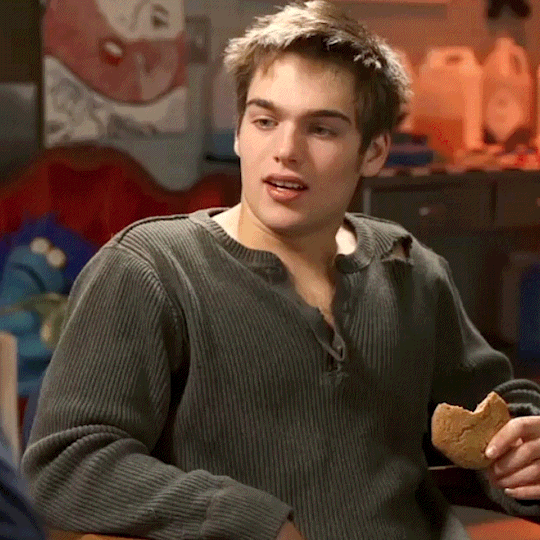
🧸
#dont ask me why hes holding a snickerdoodle because i dont really know#idk if anyone else is watching gen v but liam here looks like sam (gen v) and isaac (teen wolf) had a lovechild#liam dunbar#dylan sprayberry#teen wolf#teen wolf bts#teen wolf cast
263 notes
·
View notes
Text
they were in love here
#I feel fucking insane thanks for ASKING#dylarrison#george harrison#bob dylan#the traveling wilburys#op
275 notes
·
View notes
Text
ai will never be able to draw anyone t4t otasune so why do people even fucking care about it
#this is me asking for more t4t otasune art i havent seen enough and it upsets me#mgs#metal gear solid#otasune#snotacon#t4t#dylan post
72 notes
·
View notes
Text
Finally listened to Dylan Mulvaney's song and?? I don't get the negative hype about it, it was frankly a cute song. Also the "playin' catch-up 'cause we missed the pre-game" made me laugh, it was a good line. Dylan, you've done it again!
#trans#transgender#lgbt#lgbtq#it just sounds like... a normal pop song. the only problem is the auto tune. i'm not against auto tune but whoever mixed it...#...did not make it seamless. i'm bad at recognizing auto tune but i could hear it#the thing that sucks is auto tune is now like... industry standard but nobody who is responsible for doing it seems to do it right#to me it's justa cute song about learning to appreciate and admire life and the women who helped. like it's pretty normal#i don't even follow dylan i just think she's. a relatively normal person as far as being a former theater kid can get you#if you were in theater or band your normal rating goes down at *least* a tier level. often more than one. ask me how i know.#anyway. listen to the song i think it's cute as hell. i'm always a sucker for songs about appreciation and gratitude
57 notes
·
View notes
Text


DYLAN SPRAYBERRY AND CODY CHRISTIAN AS LIAM DUNBAR AND THEO RAEKEN
TEEN WOLF SEASON 5 EPISODE 20
liam watches theo take gabe's pain.
#dylan sprayberry#theo raeken#cody christian#liam dunbar#thiam#teen wolf#twedit#thiamedit#teenwolfedit#teen wolf season 6 episode 20#caliedits#caligifs#(hi thiam fans i been sucked into this pair don't ask me how)#(anyways the moment liam realizes what theo is gonna do :( )
823 notes
·
View notes
Photo
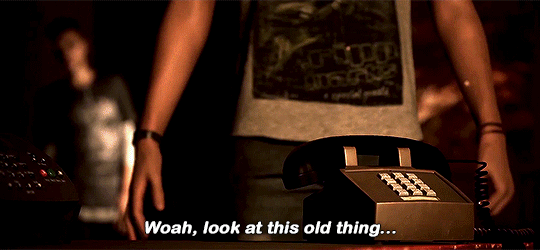
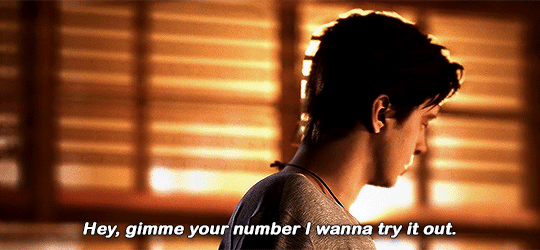
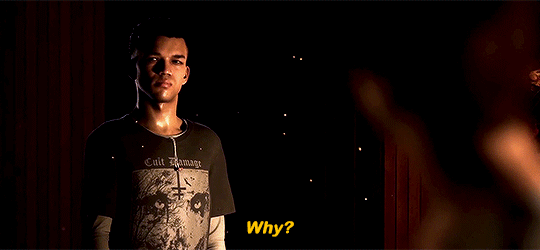
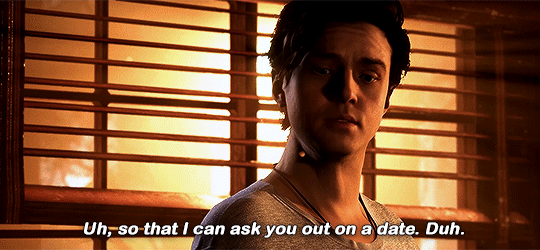
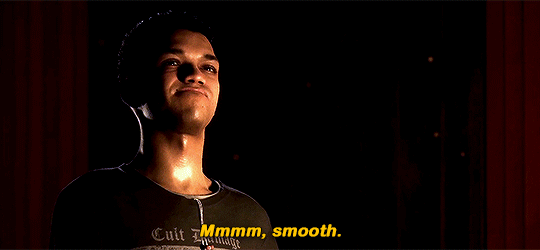
THE QUARRY (2022)
#the quarry#thequarryedit#gamingedit#dailygaming#gamingnetwork#dailyvideogames#lgbtedit#supermassive games#rylan#dylan lenivy#ryan erzahler#miles robbins#justice smith#creations tag#gifs#requested by anon!#sorry for the weird glitch in the second gif blame supermassive#tried to gif the bit you mentioned in the ask but it was wayyy too pixelated :/ sawry
3K notes
·
View notes
Note
Loved Seeing Grant Gustin and Dylan O'Brien's butts. Long Kings!
They have amazing butts!
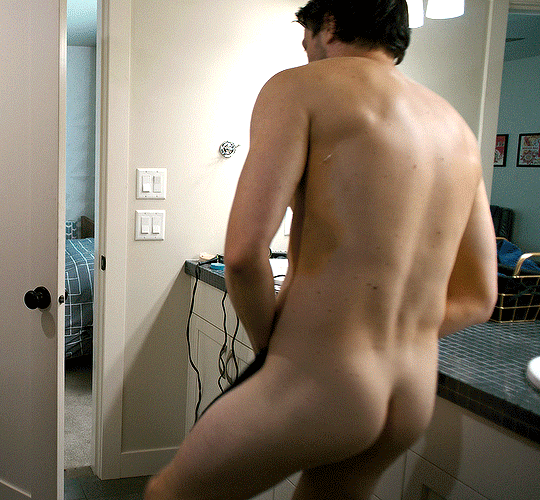

134 notes
·
View notes